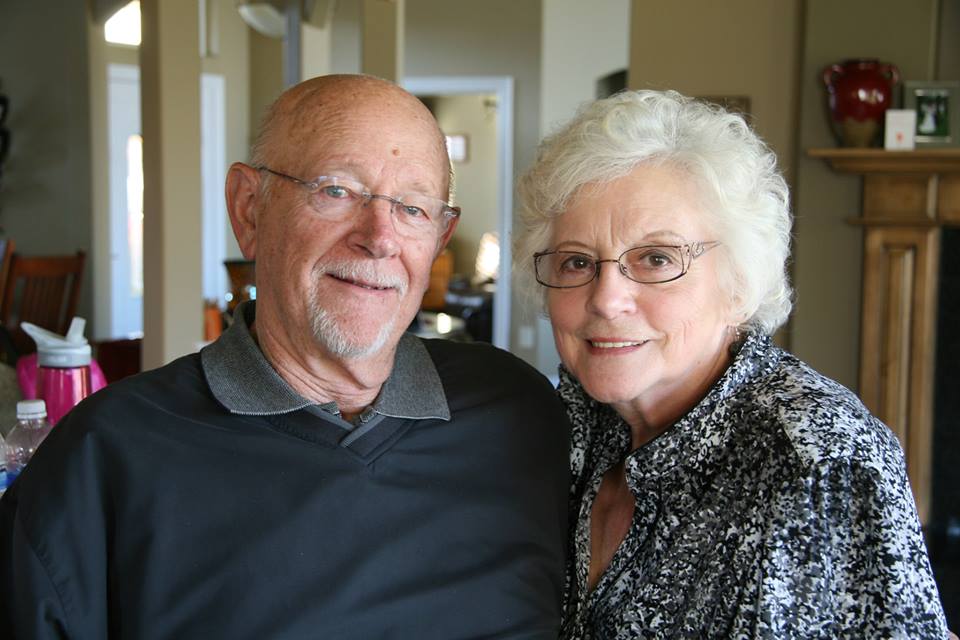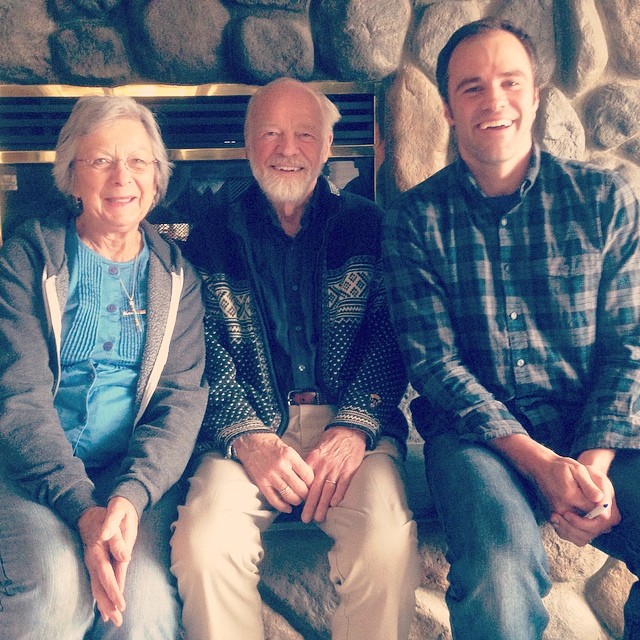For who do you know that really knows you, knows your heart? And even if they did, is there anything they would discover in you that you could take credit for? Isn’t everything you have and everything you are sheer gifts from God?
1 Corinthians 4:7-8
Two weeks ago I took a trip to spend time with some of my favorite people in the world. I flew from Denver into Spokane, Washington and rented a car to drive down to Lapwai, Idaho to be with my grandparents, Dan and Louise Wilson. They live on the Nez Perce Indian Reservation and have spent their entire lives on that soil. I’m named after my grandpa–I’m Daniel Wilson Grothe–and I think so much of him that I even gave my firstborn son his name–he’s Wilson Grothe. Grandpa Dan’s 83 and Grandma Weezie is 81. Their generosity of spirit and resource has been imprinted on their 4 children, 10 grandchildren and 17 (and counting) great-grandchildren.

From there, I got in the car and drove back to Spokane to pick up Andrew Arndt and a couple other friends so we could drive over to Montana to be with Eugene and Jan Peterson. Seven years ago as a bewildered young pastor, I stumbled onto Eugene’s book, “The Contemplative Pastor”, and found myself spellbound by his vision of pastoral ministry. Not knowing where he lived, I wrote Eugene a letter and sent it to his publisher asking them to get it to him. I was nearly certain I’d never hear back. To my great surprise I went to the mailbox two weeks later to find a personal letter from Eugene inviting me to his house after I completed a few writing “assignments” to prepare me for our visit. Since then I have made six trips to be with the Petersons and have been deeply shaped by their friendship and wisdom.

From my earliest years I can remember my parents helping me understand that my life is a compilation of gifts from other people. One does not initiate a meaningful life for herself; rather, the raw materials of a meaningful life are bestowed upon her by a community. Because of such instruction I’ve had the distinct sense that my whole life has been an exercise in reaping where other people have generously sown.
Like the time when I was 10 years old and some family friends, Drs. Mark and Betsy Neuenschwander, identified a medical issue with me while we were at a church service. They checked me out, rushed me to the hospital for emergency surgery, and in doing so preserved my ability to have children one day. I have three of them now. Reaping where another has sown.
Or the time when Susan Sealy told me she would like to help me apply for a full-ride scholarship. She was convinced I could get it, though I was very unsure. She grilled me in my areas of academic weakness, trained me in the skill of test-taking, and helped me practice crafting essays. Much to my surprise, it worked. There hasn’t been a week that has gone by where I haven’t thought about those study sessions at her dining room table, those sessions that kept me from an abyss of school debt. Reaping where another has sown.
Or like that Sunday in 1964 where Vep and LeVonn Ellis spotted a little 9-year-old boy at church all by himself and asked him to sit with them. They had no idea that the little boy walked to church by himself that day, or that he was an only child of parents who were struggling to stay married, or that he regularly acted to separate his parents from their fist-fights. But that little boy sat with them in church for the next ten years and ultimately put his faith in Jesus while in their care. They had no idea that that little boy would be my dad one day. Reaping where another has sown.
And I could keep going: Melvin. Velma. David. Becky. Larry. Linda. Billy Joe. Sharon. Gyle. Ed. Joe. Ted. Rob. Aaron. Glenn. Patton. Brady. Mary. Lisa. A life of bountiful reaping.
At the most elemental level the bald fact of human existence is a rebuke to the “self-made person” syndrome that is so prevalent in the West. No person, after all, has ever decided to be born. Which means all of us are at all times reaping where other people have sown.
As we enter Holy Week, I’m finding myself tugged toward remembering. I’m choosing to pick up the phone, to get out pen and paper, to draft a bunch of emails to communicate my sincere gratitude. Every year in the Lenten season the Church calls us to contemplate the received quality of our creaturely existence. “For God did not spare his own Son, but lovingly gave him up for us all.” Because the Father “gave up” the Son, our existence is forever defined by receiving, by reaping where Another has sown.
So let us practice humility and show deep gratitude to the Father, Son, and Holy Spirit. But also to all the people through whom the ever-giving God comes toward us to embrace us.
